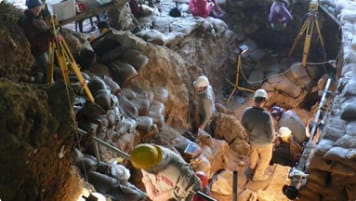35 Responsible Travel Tips from Odyssey Traveller
Article to encourage and promote responsible travel. Article supports similar articles choosing shoes or maintaining health and fitness of travel advice for solo travellers. An Antipodean travel company serving World Travellers since 1983 with small group educational tours for senior couples and mature solo travellers.
19 Jul 22 · 13 mins read

35 Tips for the Responsible Traveller
The tourism industry is one of the world’s most powerful, accounting for around 10% of the world’s jobs and GDP, and with nearly 1.2 billion people a year taking international flights. Travelling in a responsible and sustainable manner thus has the potential to reap extensive benefits.
Unfortunately, though, many forms of tourism are far from sustainable and can actually cause significantly detrimental social and environmental impacts. From tourists putting a strain on cities, to the excessive use of fossil fuels from air travel and a lack of tourist money reaching local communities, there are certainly several negative side effects of travel.
A more conscious form of responsible tourism can minimise the negative impact of travelling, ideally leaving the destination in an even better condition. By taking several simple measures, you can help to protect the environment, preserve cultural traditions, and enhance the standard of living of host communities.
At Odyssey Traveller, we pride ourselves on our ethical travel and sustainable tourism. From respecting local customs, to using sustainable forms of transport and supporting the local community, we always endeavour to leave a positive impact on the destinations we visit. To help you do so too, we’ve compiled 35 of our most effective travel tips for the responsible tourist.

Planning Your Trip
1. Consider avoiding places suffering from “overtourism”
Some of the world’s most popular cities are increasingly suffering from the problem of “overtourism”, in which the influx of too many visitors leads to overcrowding. Often residents suffer the consequences in regard to changes to their lifestyles, access to amenities, and general well-being. In destinations such as Barcelona, Dubrovnik, and Venice (where 260,000 locals deal with other 25 million tourists a year), locals are being pushed out of city centres, environments degraded, cultural identities lost, and sights ruined.
Consider making your trip less stressful for communities and environments by visiting less popular tourist destinations. Seek out quieter spots nearby by searching on the internet or contacting locals on social media about hidden places. If you do choose to visit crowded and popular cities, consider doing so during the off-season, stay longer, and engage in local activities that give back to residents.
2. Visit a ‘green’ destination
Some countries are more environmentally sustainable than others, especially in countries such as Costa Rica, Norway, and Denmark, and cities including Ljubljana in Slovenia and several in Spain are especially sustainable. These destinations have shown a commitment to protecting natural resources, habitats, wildlife, people, and heritage. Choosing to visit these places, and injecting your money into their economy, can help to contribute to the responsible work they are doing.
3. Choose Green Companies
If you want to travel with the help of a tour operator, do so with one that’s eco-friendly and socially responsible. Look for certified accreditations and consider how the companies protect and support wildlife and cultural heritage, support local businesses, and implement conservation measures for water, waste, and energy. Keep an eye out for smaller groups as they usually have lighter impacts. To help find information, you can check companies’ websites or contact them directly, or read reviews on third party websites, as well as reviews and blog posts from trusted travel bloggers.
4. Choose slow travel
Opting for a slower pace can help you to travel more sustainably and authentically. Take fewer but longer trips, rather than partaking in frequent shorter ones. Stay in each destination for a longer period of time rather than packing up and moving every other day. Leave space for lingering in cafes and people-watching, for long walks in nature, and even longer conversations with strangers. This way you can not only reduce your transportation usage, but also experience a better understanding of the place by immersing yourself in local life.
5. Travel closer to home
One of the best and easiest way to lighten your carbon footprint is to not travel far. Find local adventures in unfamiliar neighbourhoods in your own town or city. Or partake in a ‘microcation’, taking the train a few hours to a nearby beach or forest for a few days. For something more exotic, you can eat at foreign restaurants, take a language course, attend events or exhibitions, or visit cultural hubs such as Chinatown or Little Italy in your own city.

Packing & Preparation
6. Pack light
It is better for the environment to travel with less, as the more a plane weighs, the more fuel it needs, and thus the more carbon emissions it produces. Pack in advance so you have time to remove any surplus items. Consider a backpack as you’ll be more aware of superfluous weight. Take basic durable fabrics such as denim or linen that require minimal washing. Take a sewing kit to repair your things, or alternatively take them to an alterationist.
With fashion the second highest polluting industry in the world, it’s best not buy new clothes just for travel. Use what you’ve got or borrow from friends if you need something specific. If you do have to purchase new clothes, opt for charity shops, second-hand shops, or good quality timeless pieces and sustainable brands.
7. Pack eco-friendly travel accessories
Avoid those sneaky single-use plastics by taking more sustainable accessories with you. Some include a reusable water bottle, reusable straws, a lunch box, a linen or hemp tote for shopping or collecting trash, and shampoo bars that don’t come in plastic packaging.
8. Dress Sensitively
Before you start packing, research local customs and beliefs and learn how to dress in a way that is culturally appropriate for your destination. It’s important to respect local customs, whether you agree with them or not.
9. Learn some of the language
Make an effort to learn some of the local language before leaving home. This will show respect to locals, who will appreciate your effort, plus it will help you get to know a destination more intimately.
Transport
10. Use more sustainable forms of transport than flying between destinations
Flying is easily the worst form of transport for the environment, with air travel generating around 2.5% of global carbon emissions. If possible, try to take a bus, train, or ship when travelling between destinations – especially if travelling domestically. Trains, in particular, produce far fewer emissions (ten times fewer than an airplane in fact), and those emissions aren’t released directly into the upper atmosphere. You can build more train travel into your trips by choosing destinations with excellent rail networks, such as Germany, Japan, France, and China.
11. If you have to fly, book the most direct route
Look for the shortest flight path to your destination to limit carbon emissions. Take-offs and landings create most of a plane’s emissions, so it’s best to take a direct flight.
12. Carbon offset your flight
Buying carbon offsets is another option to reduce your impact when flying. Visit a site such as Native or Climate Impact Partners and calculate the emissions your flight produces, then pay the offset company to invest in offsetting projects. It’s better to choose offset schemes that invest in clean-energy products, since they’re quicker to take effect and offer social benefits.
Another way to offset your carbon footprint is by selecting an eco-friendly airline. Prioritize airlines that use biofuels or more fuel-efficient and younger planes.
13. Fly economy class
Not only is flying economy class better for your budget, it’s also better for the environment. With business and first-class seats taking up more space in a plane’s cabin, a more expensive ticket can result in up to five times more the carbon footprint.
14. Use more sustainable forms of transport at your destination
Choose to walk or cycle around your destination whenever possible, rather than hopping in a taxi or hiring a car. Use public transport such as trains and subways to get around when you’re going longer distances. Not only are these options more sustainable, but they’ll help you understand the local life better, and you’ll discover parts of the city you otherwise wouldn’t have.
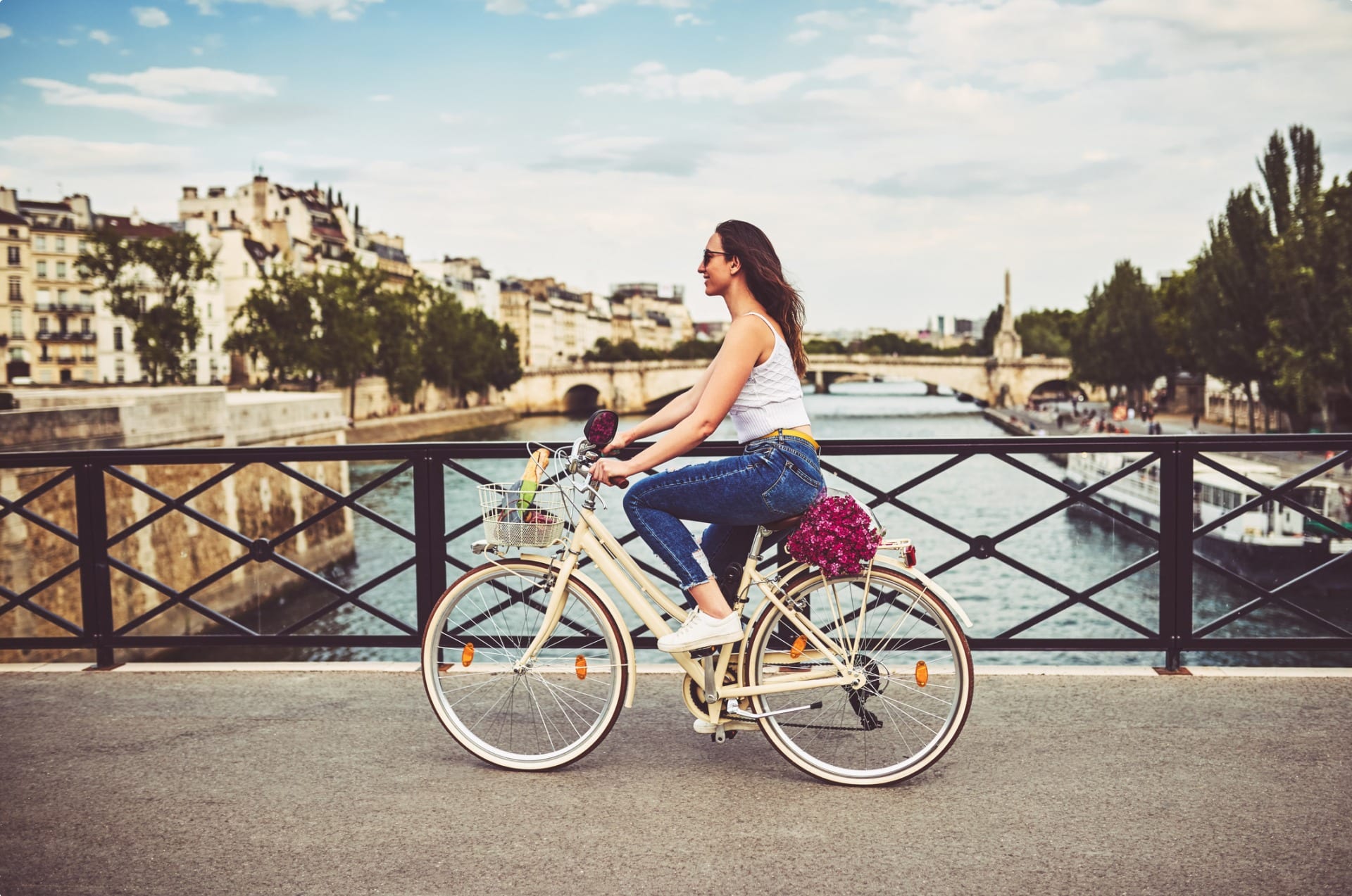
Accommodation
15. Consider alternatives to hotels
Hotels are generally the least sustainable of accommodation options due to their excessive use of resources, creation of waste, and unsustainable design. Consider alternatives such as guest houses, bread and breakfasts, house swapping, house sitting, homestays, couch surfing, staying on farms and small holdings, camping, and more.
16. Choose Accommodation that is locally owned
A great way to gain access to local communities, while supporting local business owners and injecting money directly back into the local economy is to stay in locally owned accommodation. These will usually also consume much less water and energy than large resorts and help you experience the destination in a more authentic way. The smaller the place, the more likely is it to be owned and staffed by locals. You can also read the ‘about’ page on their website to find out who owns and runs the accommodation.
17. Choose more sustainable accommodation
Take the time to ask if the accommodation is committed to sustainability initiatives. Do they use renewable energy, like solar and wind power? Do they seek out innovative ways to reduce energy demands? Do they participate in sustainable community projects? Do they source their food locally? Are they sensitive to an area’s environmental needs? Are they built with sustainable and salvaged materials? To help with your search, you can look out for green certifications for sustainable hotels and resorts like Green Globe and Green Key on the accommodations’ websites.
18. Watch out for ‘greenwashing’
Greenwashing is when a company conveys a false impression or presents misleading claims about how sustainable or ‘green’ they really are. It’s important to ask the right questions to identify if a hotel is doing this. Ask for information on specific sustainability initiatives they are taking. Or, alternatively, use a green accommodation search engine, look for sustainability- or conservation-focused stories in trusted magazines, or research the certification process of the country you are visiting.
19. Take small actions to make your stay greener
If you must stay at a hotel, there a number of small actions you can take to greatly reduce your environmental impact. Leave the ‘do not disturb sign’ on the hotel door so staff know not to clean it every day, greatly saving on the use of energy and water. Hang up your towels – this will signal to staff that you’re happy to reuse them and they don’t need to be washed. Use lights and air conditioning sparingly and turn them off when you leave your room. Bring your own toiletries to reduce the single use of tiny hotel plastic bottles. Return maps, brochures, and other tourist info once you’re finished with them or take a photo on your phone instead. Use your reusable water bottle and leave the free single-use bottles in your room.
Food
20. Eat local food
Avoid international food chains like McDonald’s and spend your money at locally owned and staffed restaurants and cafes to ensure your money does directly into the local economy. Smaller hole in the wall places are especially good options to try authentic, traditional meals and meet locals who are happy to have you trying their food. Street food vendors are also a great option to try homemade dishes from locals. Or you can taste home-cooked meals through apps such as EatWith, where you can have dinner at a local family’s place.
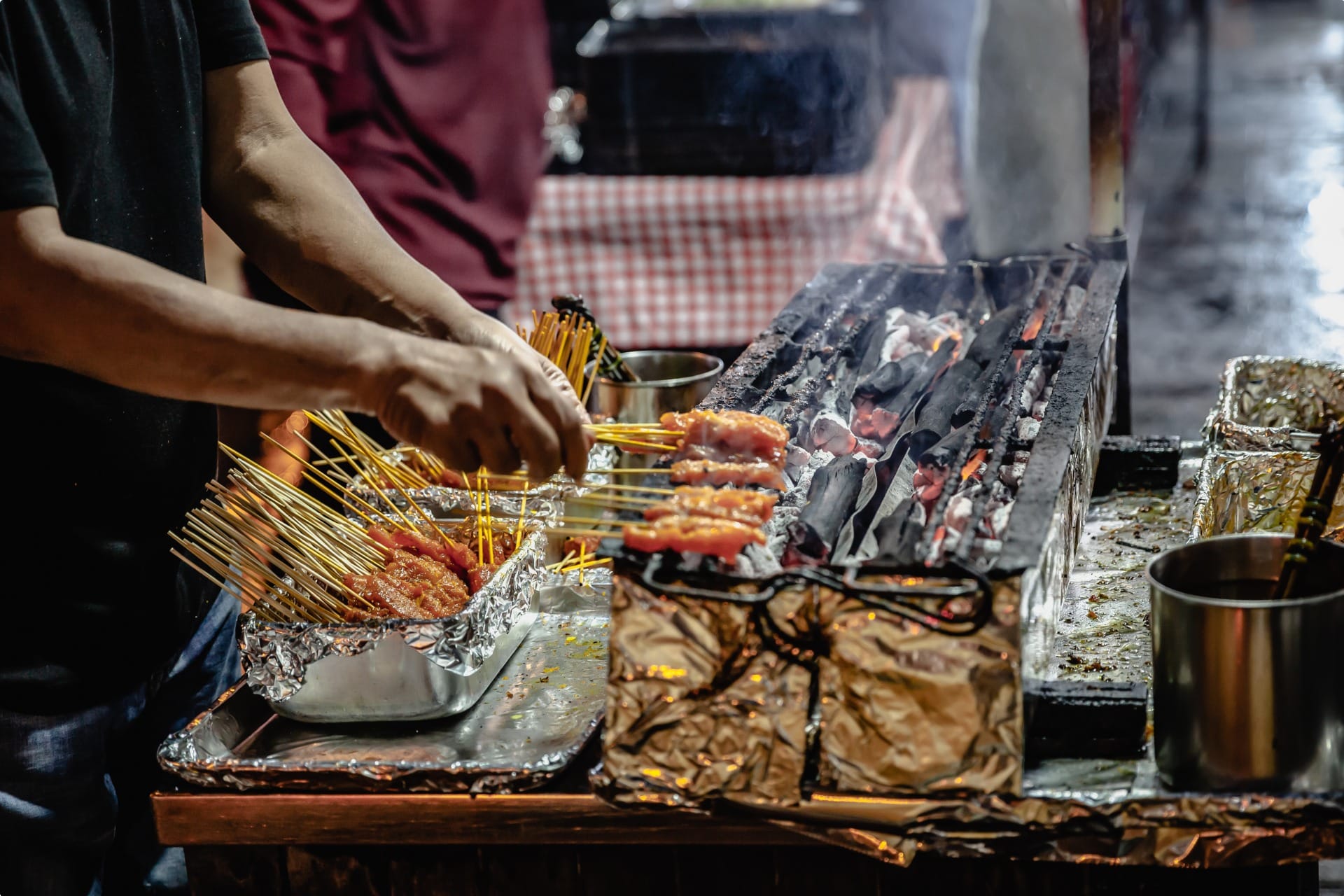
21. Look out for eco-conscious venues
Search for venues with greener options, such as those that have their own vegetable garden, menus filled with local ingredients, initiatives to support local farmers with things like microloans and training, and anywhere that doesn’t use palm oil in their menu (as palm oil plantations are leading to deforestation around the world). Ask venues questions about where the food is sourced, if there are organic options, and if they use compostable packaging.
22. Eat vegetarian or vegan food
Limiting meat in your diet can go a long way to save water and cut your carbon footprint. Support vegetarian and vegan restaurants, or cut meat out of your diet one day a week, only eat meat once per week or month, or go completely vegan. Plant-based meals on the road are often the safest, cheapest, and healthiest options anyway, plus there are a surprising number of scrumptious options out there.
23. Buy local produce and cook in your accommodation
Imported foods that are transported from far away cause significant carbon emissions. Avoid these as options and shop for local fruits, vegetables and other produce at local farmers markets, street markets, or ethical supermarkets. Take them back to your accommodation if you have a kitchen and make some locally inspired home-cooked meals.
24. Avoid buffets
Although tempting, hotel buffets are incredibly wasteful. Each day at hotels around the world, massive amounts of food are simply thrown out. If you can’t resist the buffet, consider how hungry you really are before stacking everything on your plate and tossing the remainder away. Or bring a reusable container so you can stock up on snacks for the day.
Local Impact
25. Leave no trace
Leave places you visit just as you found them, or even better, put the effort in to improve them. Always pick up your own trash, but also other rubbish you come across on beaches, city hikes, or hiking trails. When camping or hiking, make sure to leave plants, rocks, and other natural objects as you found them, do not interact with wild animals, and dispose of human waste in the right way.

26. Shop mindfully
Always buy locally made and handcrafted souvenirs over cheap plastic and internationally made luxury goods. Look for well-crafted products made from natural materials that you’ll actually use, such as handmade ceramics, textiles, and baskets. Not only will you be supporting local artisan and reducing the carbon footprint of any item you buy, but you’re also likely to end up with more unusual souvenirs that you’ll treasure forever and won’t end up the bin.
27. Conserve water
Two billion people around the world don’t have clean running water, and tourism only intensifies the problem as hotel guests typically use more water than locals. Help by prioritising accommodation that uses rainwater, taking shorter showers, packing darker clothes that need washing less often, reusing towels, and turning the tap off when brushing your teeth.
28. Avoid geotagging
The ever-increasing number of geotagged photos on social media giving exact location data is causing overtourism in once secluded and pristine locations around the world. This is having a negative effect on park resources, animal populations, and traditional landowners. Take the time to research about any ecological issues or indigenous beliefs about places you want to visit, and don’t just visit so you can get a certain Instagram shot. If you do share photos about these places, consider withholding the location information.
29. Volunteer responsibly
Volunteering is a great way to have a positive impact on the places you visit, and there are a number of opportunities with local NGOs and community tourism organisations. Just be sure to research the volunteering opportunities and the organisers behind them, as often ‘voluntourism’ does more harm than good. Make sure you’re volunteering will be making a positive contribution to the place and helping to empower local communities.
30. Give responsibly
While in countries less fortunate than our own, we instinctually want to help out the locals. Some options for giving are better than others through. It’s best to avoid giving gifts or money to local, begging children, for example, as often criminal gangs run these begging rackets. Your money will go further if you donate to reputable charities, or you can ask for specific ways to help out with a particular community you may have connected with.
31. Choose a local guide
Employing local guides ensures your money does directly into the community. They also know the place intimately, can introduce you to the best local places, and can help you to understand the local culture on a deeper level. To find local guides, ask friends and people you trust for recommendations or seek out tour companies that use knowledgeable local tour guides.
32. Respect local cultures and customs
Learn about your destination’s local cultural traditions so you can behave in a way that doesn’t offend them. For example, you may want to cover up in Muslim countries or religious sites. Show respect to locals by being polite and friendly. Try to speak a few words of their language, and always ask permission when taking photos.
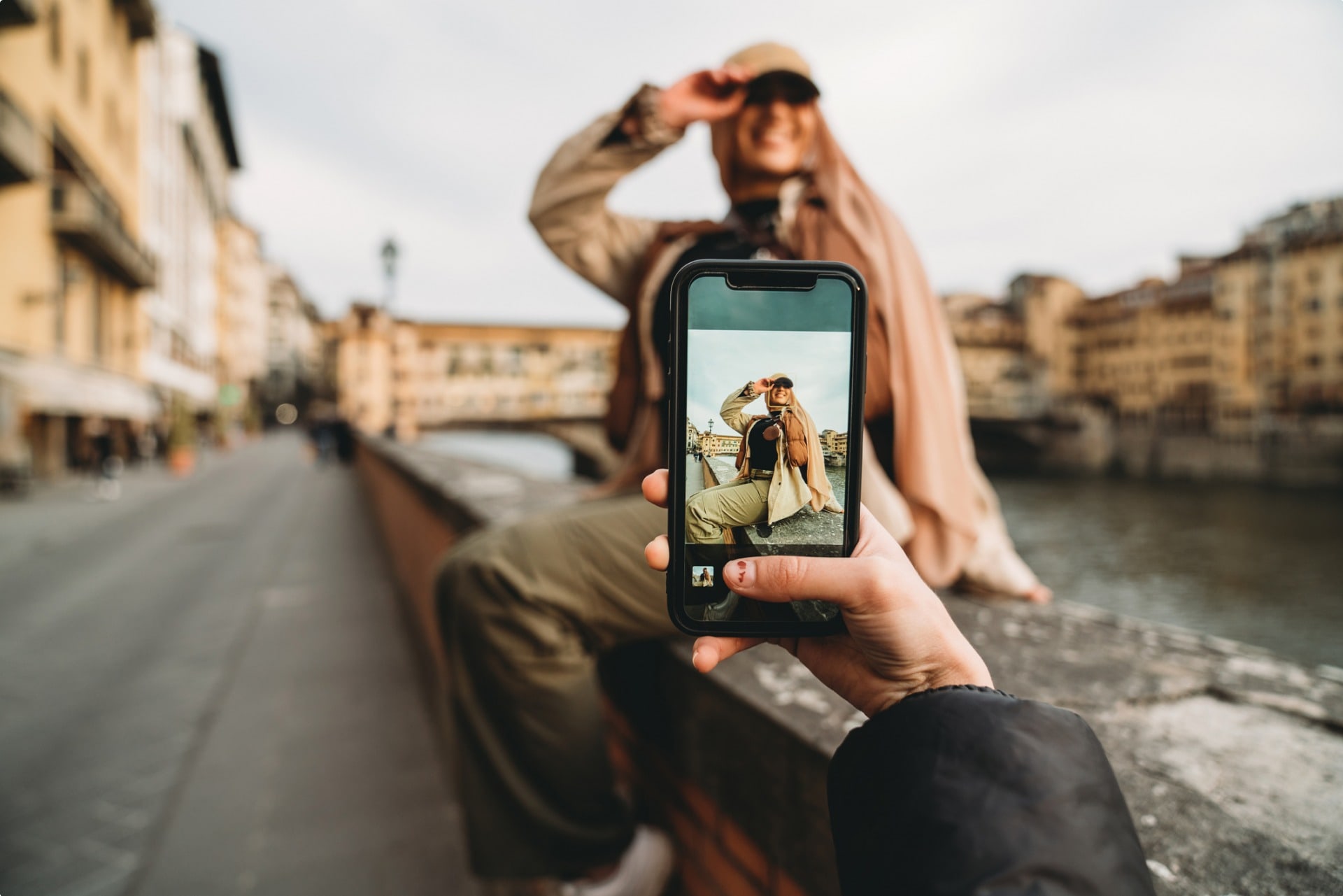
Upon Your Return Home
33. Share your sustainable travel experiences
Share your responsible travel experiences throughout your social channels. Let your wider community know of the actions you have taken to lessen your footprint and why have you done so. Hopefully, your friends, family, and those you reach on social media will be inspired to make their own changes for good next time they travel. Remember to share consciously if using social media, considering how your posts can be crafted to inspire your followers.
34. Give feedback
Individual actions are great, but if you want to see a sustainable model of tourism adopted en masse, you’ll have to speak up to support wider change. Start by sending emails of appreciation to all those excellent eco lodges, homestays, off grid camps, local guides, and sustainable travel companies you encountered who were doing things right. Also call out those who could do better – to the hotels you believe were greenwashing, companies who weren’t making an effort to minimize their footprint, or restaurants serving endangered species. Hold them accountable to their actions and inspire them to investigate more friendly options.
35. Incorporate practices into your daily life
Continue to live at home using the same responsible practices you adopted on the road. Continue things like saying no to single-use plastics, supporting locally owned businesses, and buying fewer (or no) new clothes.
Responsible Travel with Odyssey Traveller
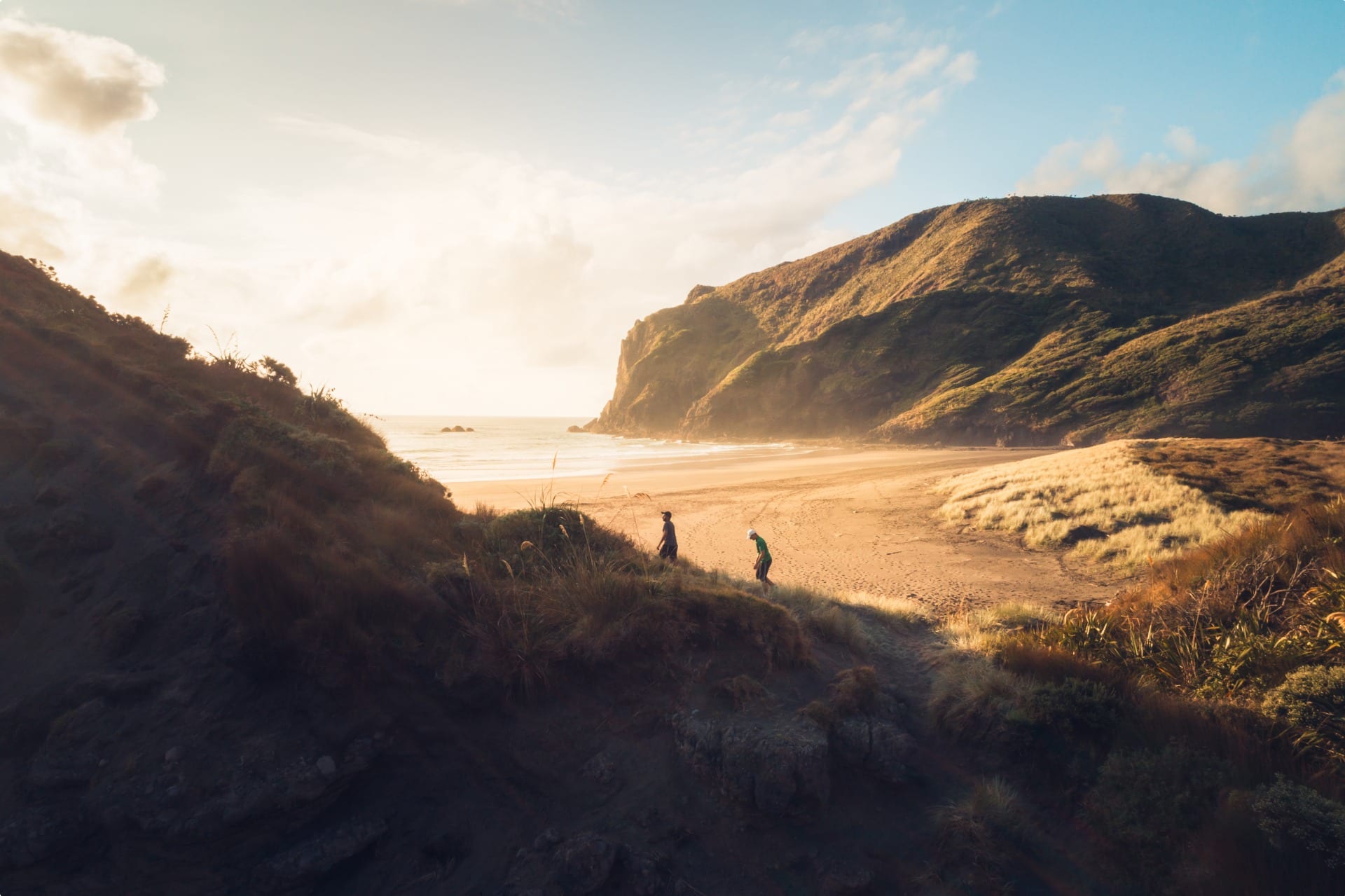
Here at Odyssey Traveller, we specialise in crafting unforgettable experiences for travellers, providing adventure and educational programs to small groups since 1983. Our guides help us us understand local customs and ensure that we enter and leave a foreign country as thoughtful guests. We also regularly publish articles to give prospective and loyal Odyssey clients backgrounders about the places we visit.
Our small-group approach (Odyssey groups can be as small as four people, typically with a maximum of 14) minimises our impact on the environment and local infrastructure, allowing us to use public transportation and/or small vehicles, or go on long hiking and walking trips without subjecting locals to visual pollution. We also seek out local craftspeople and smaller shops to ensure that the money we spend truly goes to the community we are visiting.
Some of our trips may once have been considered elusive dreams but are now made accessible with the help of our Program Leaders and local guides. Our tours include, among many others, immersive trips to see dinosaur fossil sites in China and Argentina and exploring emerging destinations such as Armenia, Georgia and Azerbaijan or Iran where we started to visit since 2003.
We always endeavour to include places that may not be famous but will provide deeper insight into a country’s heritage. In Kazakhstan, for example, we will visit the big cities of Nur-Sultan (formerly Astana) and Almaty but also stay in village guesthouses in Ulytau.
We have guides that will help us understand local customs and ensure that we enter and leave a foreign country as thoughtful guests. We also regularly publish articles to give prospective and loyal Odyssey clients backgrounders about the places we visit.
For more information on Odyssey Traveller and our educational small group tours, click here. Alternatively, please call or send an email. We’d love to hear from you!
Related articles published by Odyssey Traveller
- Responsible Tourism for mature and senior travellers
- The Problem of Overtourism
- “The Tourist Trap: Practising Responsible Travel
- Packing Advice for Odyssey Traveller’s Small Group Tours
- Mature Travellers Footware and Clothing Tips
- Advice for Mature-Aged Solo Travellers
- Tips for Packing Light
External articles to assist your responsible & sustainable travel
Related Tours
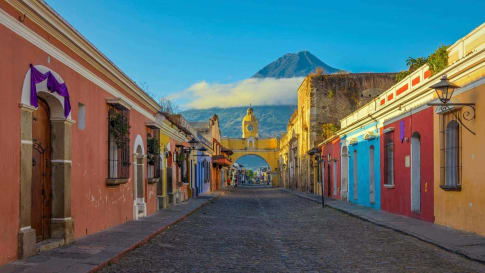
27 days
Oct, AprJourney through Central America: Panama, Costa Rica, Honduras, and Guatemala
Visiting Costa Rica, Guatemala
Join Odyssey Traveller as we go on a 27-day small group journey for mature and senior couples and solo travellers across Central America, exploring the history and diverse scenery of Panama, Costa Rica, Honduras, and Guatemala.
From A$22,855 AUD
View Tour
10 days
Oct, JanNorthern Lights Small Group tour | Visit Norway and Finland
Visiting Finland, Norway
Odyssey's small group tour following the Northern Lights allows you to experience serene snow-covered Arctic landscapes. Throughout our journey guides and specialists will outline the history of this stark region and the nature of the peoples who wrested their living from it. A unique opportunity to view this natural phenomenon travelling as part of a small group.
From A$9,625 AUD
View Tour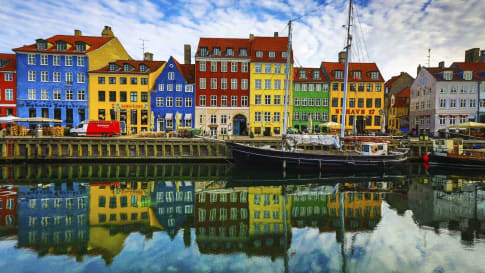
13 days
Jun, SepScandinavia tours for mature travellers
Visiting Denmark, Norway
Uncover on a small group tour for couples and solo travellers, a Viking past and view of the world’s biggest fjords on this journey through Scandinavia. In low-lying Denmark our small group journey takes us to visit the Zeeland, the sea land, and our program includes the vibrant capital of Copenhagen. In Norway we travel through endless forests, skirting great fjords to Bergen.
From A$14,995 AUD
View Tour
20 days
Aug, MayTour of Denmark's Culture & History
Visiting Denmark
Experience group travel for couples and single travellers to Denmark. This European tour provides a travel experience based around key destinations and itineraries that provide authentic experiences in Denmark .A single supplement applies for solo travellers.
From A$15,895 AUD
View Tour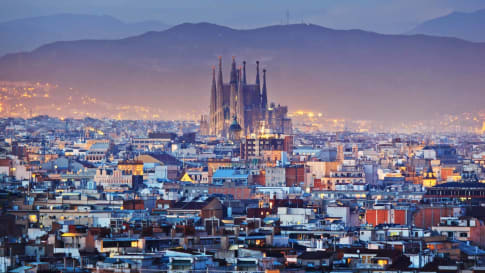
21 days
Sep, MayDiscover Spain
Visiting Spain
Join this small group travel, 21-day tour of Spain. For couples or solo traveler with minimal single supplement has daily itineraries with local guides that provide authentic experiences for those who seek small group journeys. Escorted tour begins in Madrid, finishes in Barcelona.
From A$14,750 AUD
View Tour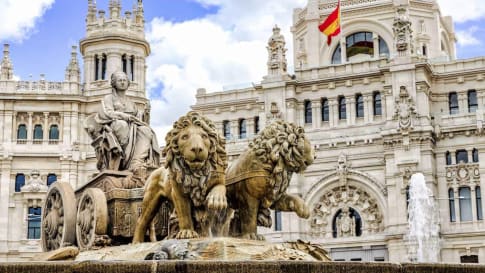
11 days
Sep, Apr, AugShort Spain Tour for senior and mature travellers
Visiting Spain
Join our small group guided tour of Spain, exploring this fascinating country over 10 nights with like minded people. We start in Barcelona and make our way slowly towards Madrid. Enjoy the food and culture while learning about the history of each location from our expert local guides and Odyssey Program Leader.
From A$7,610 AUD
View Tour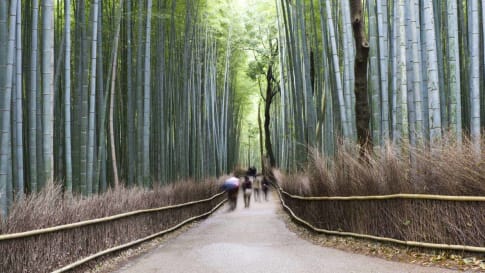
10 days
AprJapan History by Rail - Small Group Tour
Visiting Japan
Explore historic and present day Japan. Journey by rail to regions and great cities to learn about their historical significance.
From A$13,995 AUD
View Tour
days
Apr, AugIrkutsk to Helsinki on the Trans-Siberian Railway
Visiting Finland, Russia
Escorted tour on the Trans-Siberian railway network from East to West starting in Irkutsk and finishing in Helsinki after 21 days. This is small group travel with like minded people and itineraries that maximise the travel experience of the 6 key destinations explored en-route. Our small group journeys are for mature couples and solo travellers.
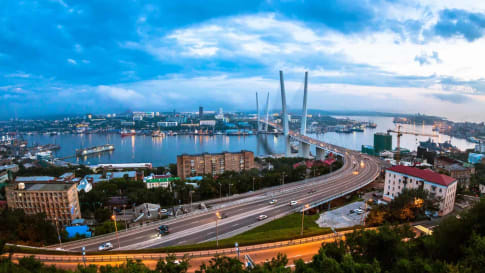
22 days
OctKrasnoyarsk to Vladivostok on the Trans-Siberian Railway
Visiting Russia
Mature and solo travelers group Travel on the Trans-Siberian Railway for 22 days covering the second half of the Trans-Siberian journey, from Vladivostok to Krasnoyarsk to Vladivostok on the edge of Siberian Russia Small group journeys with a tour leader, explores 5 key cities with local guides providing authentic experiences in each with stops of 2-3 nights.
From A$12,650 AUD
View TourRelated Articles
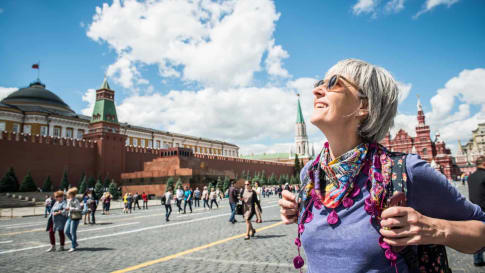
Advice for Mature-Aged Solo Travellers
Advice for solo travellers seeking advice on holidays for solo travellers over 50. Odyssey has been offering small group tours for mature and senior travellers all around the world since 1983.
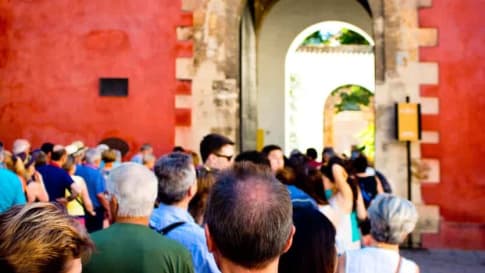
Avoiding the crowds and queues on holiday
Avoiding the crowds and queues on holiday For Odyssey Travellers we frequently look at the logistics of avoiding the crowds and queues on holiday. Fortunately, offering a diversity of small […]

Being Travel fit: The Definitive Guide
Being travel fit, in mind and body. In this article, we will discuss ways in which to treat your mind and body, ensuring you remain travel fit and enjoy your time as a mature-aged or…

Benefits of a small group tour for the mature and senior traveller
Article details the benefits of a small group tour for mature and senior travellers, whether travelling as a couple or solo, in your 60's or beyond in your 80's. Advice on choosing a responsible touring company and things to consider post pandemic.

Graceful Ageing: Tips to Counter Age-Related Muscle Loss
Graceful Ageing: Tips to Counter Age-Related Muscle Loss We experience a lot of physical and mental changes as we grow older, but one of the most insidious of these changes is a common condition called…
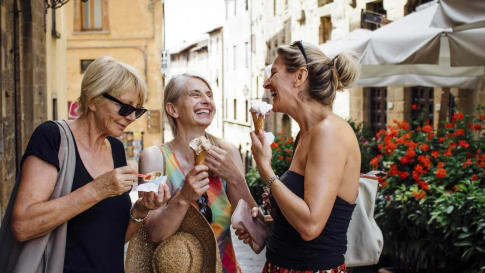
Happy ageing! Advice for the over 50s
Happy ageing! Advice for the over-50s Recent reports in the media suggest that life gets better after the age of fifty. Happy ageing! This article provides some advice for the over 50s with respect to…

How to choose your next small group tour
Deciding on which tour company to choose maybe difficult, personal recommendation is a good start. At Odyssey Traveller we have been providing small group tours to mature and senior travellers couples and solo travellers since 1983 to places all around the world.
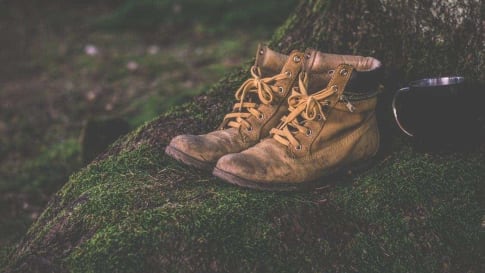
Mature Travellers Footwear and Clothing Tips
Choosing Footwear and Clothing as a mature traveller. While our programme materials always contain advice on specific climates, there are a number of helpful general principles to bear in mind […]
Older travellers; Travel in your 80s and beyond
Older Travellers; Travel in your 80’s and beyond For curious and adventurous individuals, the thirst for new experiences doesn’t cease with age. Wanting to discover more about the world doesn’t stop when you get older,…

Packing advice for Odyssey Traveller's small group escorted learning tours
Packing advice for mature and senior travellers taking a long haul flight to commence their vacation and a small group tour. Some travel tips on how to look at packing and organisation to minimise disruption to your vacation. Advice for couples and solo traveler joining a walking tour or discovery tours
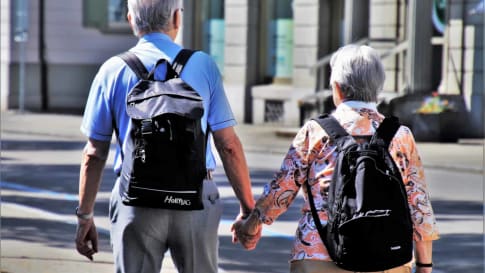
Practising Responsible Travel
Practising Responsible Travel In January 2018 we reported on a growing problem: the overcrowding that affects tourist cities across the world. Time Magazine recently called it “The Tourist Trap”, because it is not as simple as…

Preparing for a walking holiday or tour?
How to Prepare for a Walking Holiday – 10 Tips It’s hard to beat the pleasure of a walking tour. While the comfort and speed of a coach or train has its place, exploring a…

Problem of Overtourism
Problem of Overtourism The night crowd at the Trevi Fountain in Rome, Italy Tourism is a double-edged sword: it brings economic prosperity to a community, but can also be a burden on its resources. Cities…
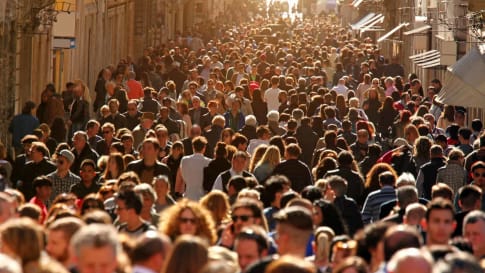
Responsible Tourism for mature & senior travellers
Responsible Tourism for mature & senior travellers There’s a growing problem in the world’s most popular cities affecting the tourism industry, and this article provides context and commentary on responsible tourism for mature-aged and senior…
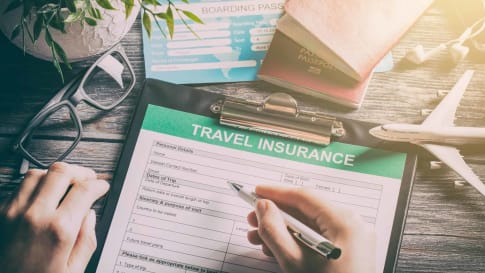
Security on Your Odyssey Traveller tour
Security on your Odyssey tour From phone transactions to travel documents, connectivity has made travelling so much easier. But it has also made security a tad tougher. Fortunately, Odyssey has […]
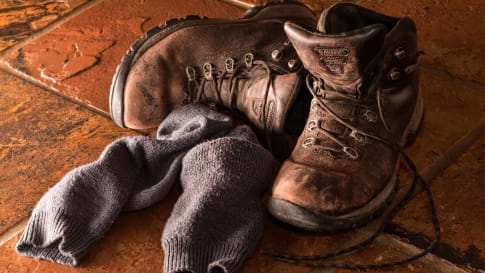
Selecting Shoes and Socks: Advice for mature travellers
For mature and senior travellers on a small group guided walking tour or walking holiday selecting good socks and shoes for the journey will improve your experience on European walking tour considerably. This article discusses the range socks available and what to consider when choosing a pair of walking shoes to use on a Odyssey guided walking tour.

Small Group Tours: The Definitive Guide
The trend is to small group tours, we have offered this style of package tour since 1983. For mature and senior travellers who are active and like to explore and learn when travelling. There is a great range of guaranteed tours offered to couples and single travellers.
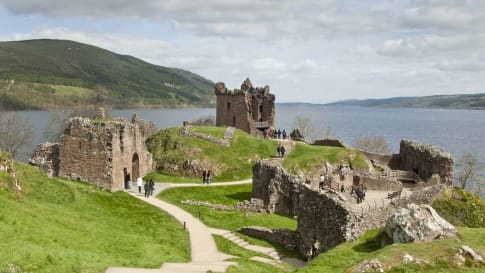
Solo travel – enjoying small group tours for seniors
Solo travel can be daunting as apart of a life change process. This article shares some the benefits of travel groups for solo travellers. We have been looking after mature and senior travellers since 1983 we offer a range of tour types from Discovery tours to long stay and walking tours.

Taking a small group tour?
Thinking about taking small group tours? A small group trip for your next holiday/vacation is a terrific way to meet like-minded travellers. By small group tours, these are groups of […]
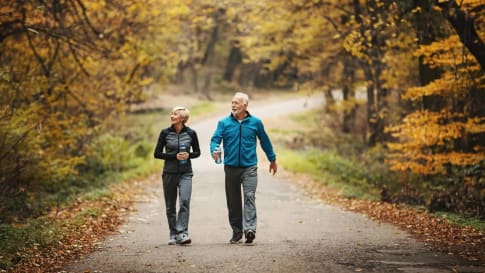
Travel Fitness and Wellness on Small Group Tours
Being Travel fit for mature and senior travellers remains an important element of enjoying a small group tour. This page shares tips about diet, solo travel, packing tips and footwear to help you plan you vacation to Europe, United Kingdom, Australia or New Zealand for example.

Travel Tips for Odyssey Travellers (part II)
Small Group Tours Travel Tips for mature aged travellers Many travellers ask us how best to prepare for their Odyssey Traveller programs, seeking out advice on clothing, medication, insurance, among […]

Travel Tips for Travellers
Travel Tips for Senior Travellers (part one) Many travellers ask us how best to prepare for their Odyssey Traveller programs, seeking out advice on clothing, medication, insurance, among other concerns. This article shares our years…
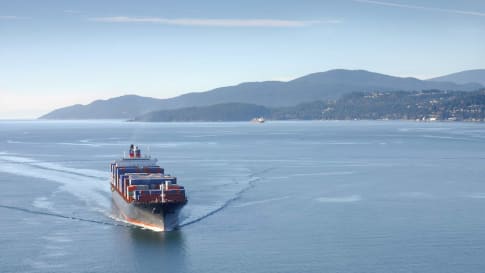
Travelling by Cargo Ship
Article for mature and senior travellers on who to travel using the network of cargo ships to reach your destination.
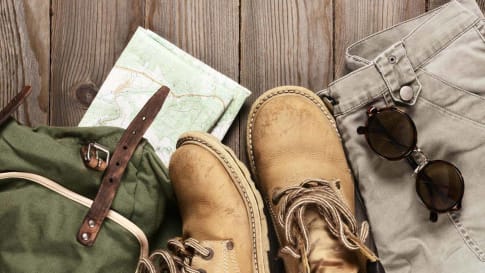
What to pack for holidays
For mature solo and senior travelers what to pack for holidays in a post Covid-19 environment is packed with suggestions. Article for small group tour travellers to Europe or outback Australia to assist with packing advice for general trips and walking tours.
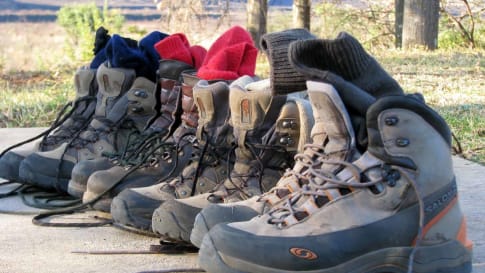
Women's Walking Shoes: The Definitive Guide
Choosing the Right Walking Shoes: Advice for Women For women, especially older adults, choosing the right walking shoes has repercussions beyond fashion. A study in 2005 showed that “incorrectly fitting footwear is common in older…
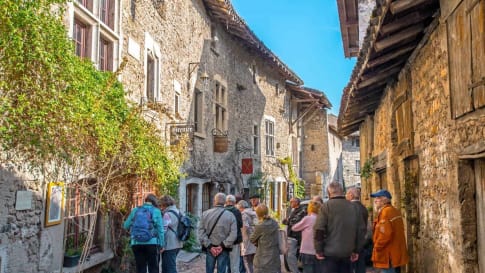
Why Take A Small Group Educational Tour?
Why take a small group educational tour with Odyssey? The philosophy of Odyssey Traveller is that the best way to learn about a place is to visit and immerse yourself in the […]
